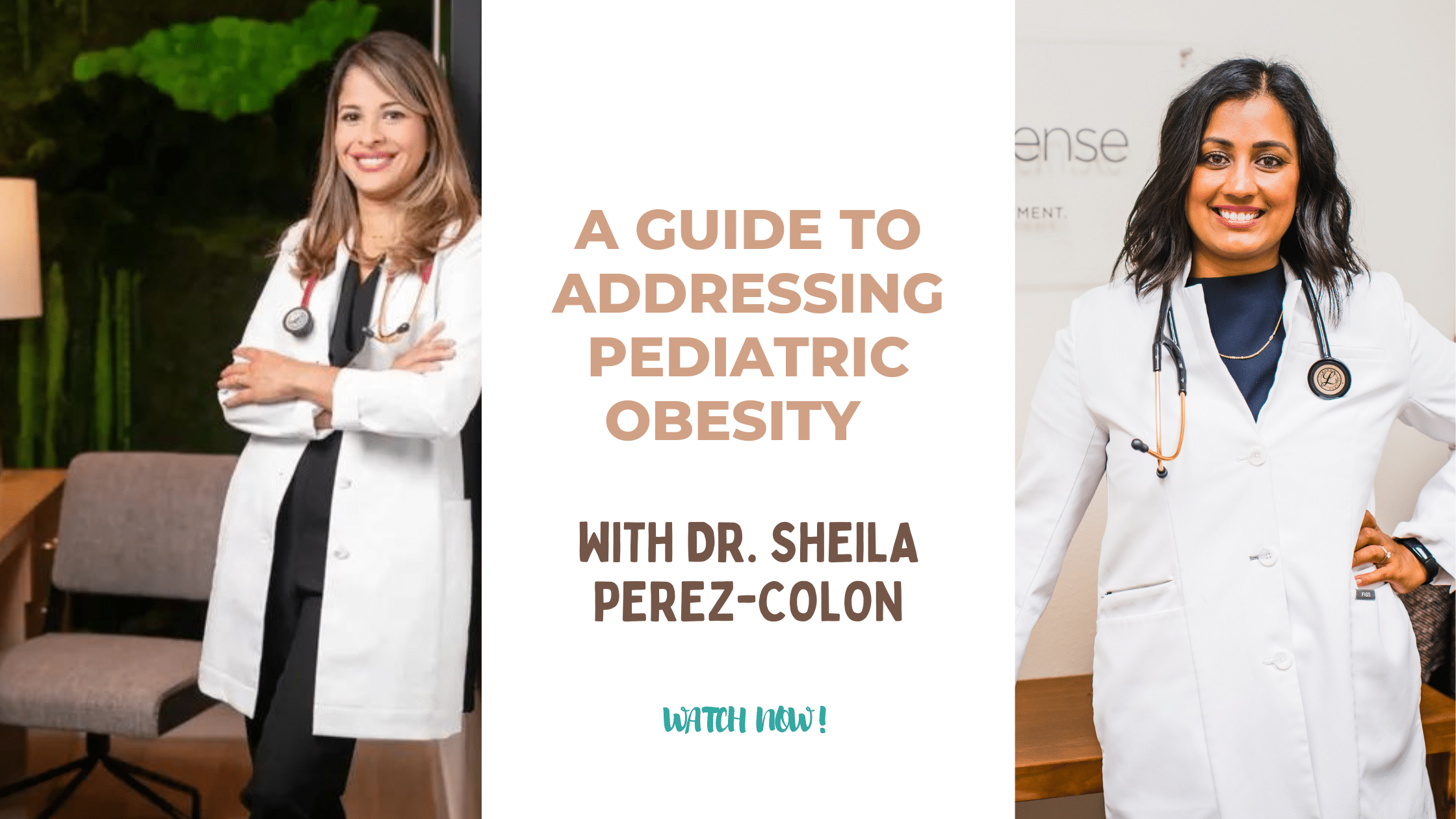People often find me to help them with their weight so that they can be there for their families, especially their loved ones and their children. Given the prevalence of obesity in our society though, most of our children are at risk too for the medical harms associated with excess weight. Knowing this, I asked Dr. Sheila Perez-Colon, a pediatric endocrinologist, to speak to me about Pediatric Obesity. Because after people ask me what they can do to improve their health, they tend to ask me how they can help their children. Dr. Perez-Colon practices in Puerto Rico and is the founder of Elite Endocrine MD
| Click to watch the video |
Pearls from our talk:
- Children are not mini-adults— the tools and framework to support children with their weight are slightly different than adults. Working with your pediatrician is a great place to start if you are concerned about your child’s weight. Remember we want a supportive environment to nurture our children and not shame them for their size (really, we want that for all of us)! Also, the conversation regarding weight and health in the pediatric population is different—- the focus IS NOT about pounds lost. It’s about healthy habits gained.
- Children need support and should not be blamed or shamed for their size or shape. It is though important to address weight and weight-related issues from a medical perspective. Dr. Perez-Colon shares that many children with excess body weight are being diagnosed with pre-diabetes, Type II Diabetes, liver conditions, sleep apnea, severe depression, and even joint pains secondary to obesity. We want the best life for our children and catching these medical diseases early can mean a lot for our loved ones. This is where seeing a pediatrician is most helpful— in diagnosing what may be occurring under the surface.
- How do we diagnose overweight or obesity in children? By using growth charts to measure BMI percentile. In children a percentile between 85% – 94% is associated with being overweight and a BMI percentile at 95% or above indicates obesity.
- How do we advocate for our children if there is a weight concern? Start with their regular scheduled exams and if the BMI percentile is elevated, ask for more medical support or a referral to trained professionals for guidance.
- What are simple ways to foster healthy habits at home?
- Choose & Drink Water—- you as a parent may have grown up in a household where it was suggested to you that drinking orange juice was necessary for important vitamins and minerals but really drinking water is the key to wellness. For the vitamins and minerals, we can eat whole fruit instead (as opposed to drinking it).
- Aim for 1 hour of physical activity a day for our kids and for yourself— yes schedules are tight but the 1 hour of physical activity doesn’t have to be done all at once either. Break it up into 15-minute chunks if you need to. Take walks, ride bikes, go for a swim, go to the park, or even throw a ball around.
- Aim for 5 fruit and vegetable servings a day, but you don’t have to switch it all up at once. You can start where you are and aim to add in one additional serving of a meal a week and work your way up.
- Be cautious of pushing for the “clean your plate club”— children have satiety signals and can feel fullness too. If they’re no longer hungry, let’s not force it. Eating past their fullness signal by “cleaning their plate” isn’t necessary in the modern world of plenty.
- Celebrate in ways that don’t involve food– Going to get ice cream for a child’s accomplishment may send the wrong signal—- instead, consider celebrating without food. Play a game, schedule a movie night, go to the beach, or take a hike. There are so many ways to spend time with our children that don’t involve food.
- Prioritize sleep –Adolescents need 10-11 hours of sleep at night. Let’s help them be their best by encouraging and protecting sleep.
- Stay connected with your child— your children need you and your guidance. We won’t always have them under our wings. This time is precious.
Lastly, beyond lifestyle habits and love, there is a time and place for medications to be used to help treat pediatric obesity. If this is of interest to you, I encourage you to speak to your pediatrician.
https://youtu.be/gCN6lVFCPhk
Thank you,
Dr. Shah




